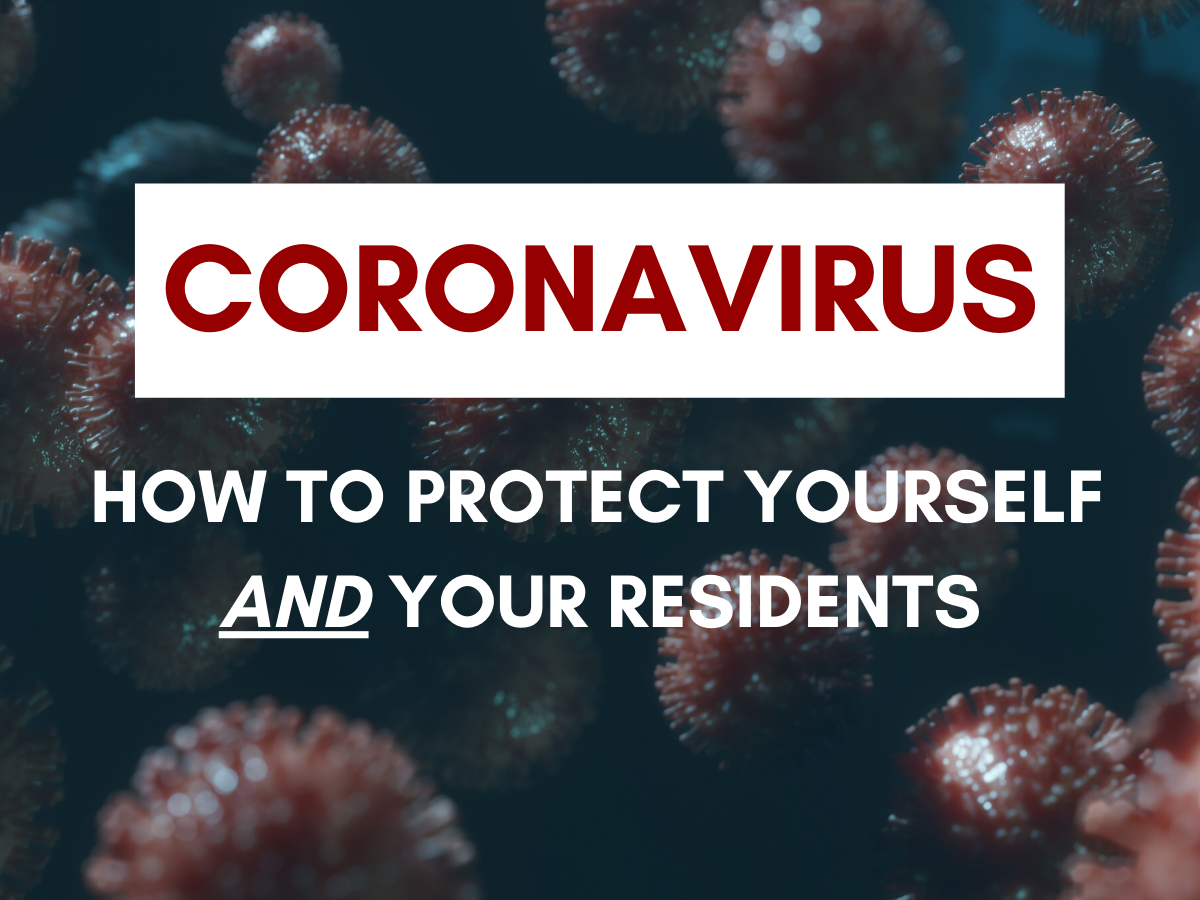Is It Possible to Be Safe in the Current Public Health Scare?

If you’ve been watching the news, then you may understand the worldwide concern – and panic – about the Coronavirus. While the death rate may seem relatively low here in the U.S., this might not stop your residents from expressing concern, especially when there’s precedent. For the past several hundred years, the 2020s as a decade has been fraught with disease.
In the 1720s, there was the Great Plague of Marseille (a strand of the Black Death) that killed around 100,000 people, as well as Smallpox and Measles in ‘the thirteen colonies. In the 1820s, there was the Cholera Outbreak (or First Cholera Pandemic), which lead to all those movies where someone coughs into their fancy handkerchief and quickly hides the blood on it. You know those movies? The ones where as soon as they cough you know that person is going to die because that cough with the tiny specks of blood is like Chekov’s Gun? No one knows how many people died of the 1820’s Cholera Pandemic. For dramatic purposes, it is estimated that in April, 1821, over 1,200 people died in just eleven days in Semarang, Java.
In 1918-1920, the world faced the Spanish Flu, which killed up to 100,000,000 people. For those who survived the Twilight Phase, yes, this is the one that killed Edward Cullen. Typhus rocked Russia, and Los Angeles dealt with the Pneumonic Plague. Now it is 2020, and there’s an outbreak. The death toll may be ‘low’ but the World Health Organization has expressed its concerns with this outlook, stating that even “high income countries” should take this incredibly serious, as “this epidemic is a threat for every country, rich and poor.” Corona Virus has now been labeled a pandemic:
- “This is not a drill.
- This is not the time to give up.
- This is not a time for excuses.
- This is a time for pulling out all the stops.”
Thank you to the World Health Foundation (WHO), that is appropriately terrifying. Now that everyone is scared, how do you, as a property manager, pull out all the stops to comfort your residents? It is your job to ensure they have a safe living environment. What do you do?
Sanitation Stations
The Corona Virus is, of course, a virus, which means anti-viral methods should work. Having cleaning wipes around common areas such as laundry rooms, mail rooms, gyms and casual hang outs may be a bright spot for residents. You can schedule a moment to stop by for a quick wipe down of widely used surfaces and leave the wipes for residents who want to do it for themselves, too. Leaving hand sanitizer in easy-to-access spots can also help put the mind at easy.
Demon Door Handles
If you’ve talked to your health “nut” friends, then you may also know that door handles are awful. They are, and public door handles the worst. This is because everyone and their mother puts their grubby little hands on them, and you don’t know what germs they are carrying. In the viral sensation (pun intended) that is Dr. Sara Cody, it is not recommended to touch your face, but that is very hard to do.
Offer different ways to open doors. In some places, it may be natural to get some door stops to keep doors (such as laundry room doors and gym spaces) open so no one must touch the door handles. If there is a security issue that means these doors must remain closed, offer new paper towels besides the doors for people to use at their discretion instead of direct hand contact. There are plenty of ways to operate an elevator without use of fingers. Have a sign to show people they may use pens, Q-tips or other methods. If the elevator button is heat-sensitive (meaning buttons require human touch) to use, maybe post a sign to show how you can use an elbow to do it, since elbows will not ever touch your own face.
Post Notices
WHO has created their own posters that you can post in public areas. There are four posters to use at your discretion that go over how and when to wash hands, what to avoid doing to keep others healthy and what to do. This is a low-effort way to show your residents you care about their help and want to ensure they are taking care of themselves.
Author, Nicole Seidner is a writer and frequent contributor to CIC. She specializes in creative nonfiction. She focuses in research-based writings with the intent to educate those in the rental housing industry. Her goal is to ensure (while factually correct) her writing can entertain and intrigue readers at the same time. Contemporary Information Corporation (CIC) is a preferred tenant screening service provider for the Apartment Association of Greater Los Angeles. For more information, go to https://aagla.org/cic-apply-connect/.
Help us keep on fighting. Please make sure we have the resources to fight proposed legislation that harms your investment in rental property. Support the AAGLA Political Action Committee. Give today! Please contribute generously by mailing your check to AAGLA PAC, c/o Reed & Davidson, LLP, 515 South Figueroa Street, Suite 1110, Los Angeles, California 90071-3301; Attn. C. Davidson, Treasurer, or contribute online via credit card at: https://aagla.org/pac/. Every dollar counts in the fight to protect your property rights and your bottom line.
